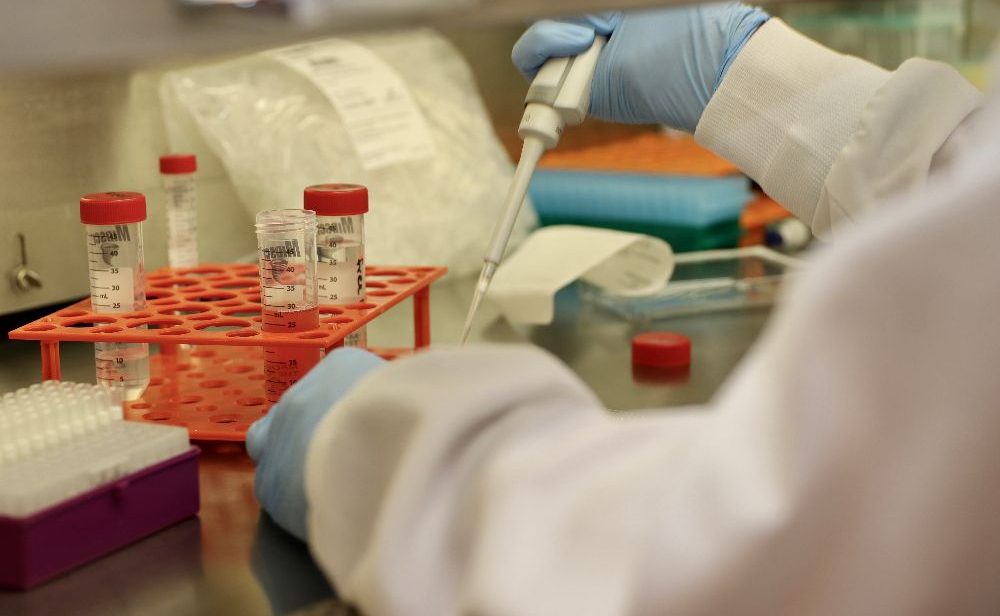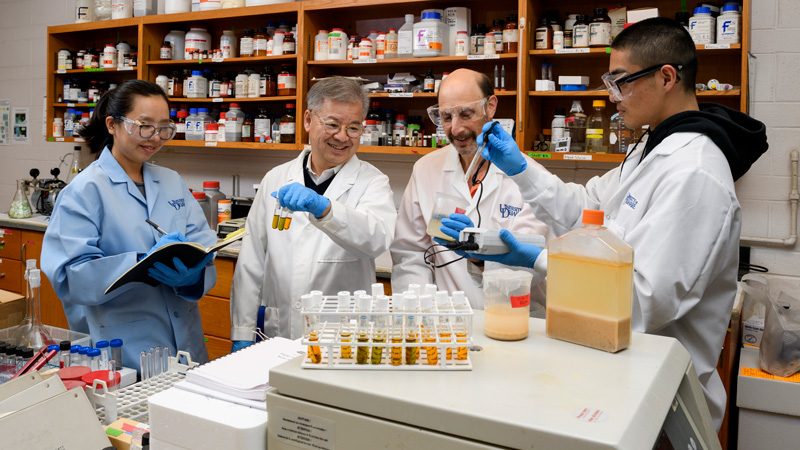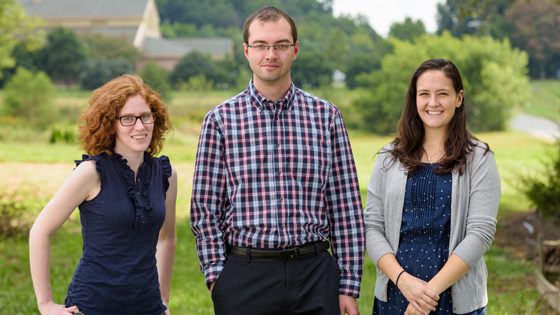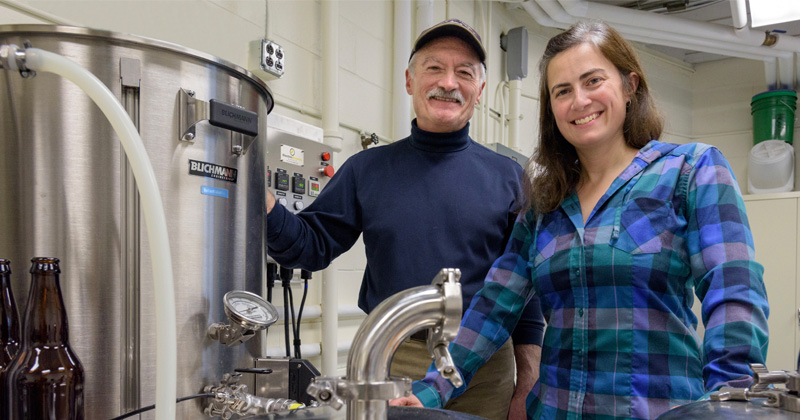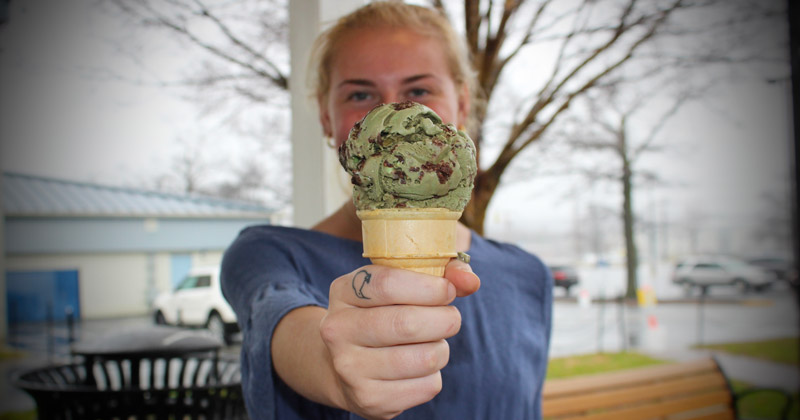
Graduate Programs
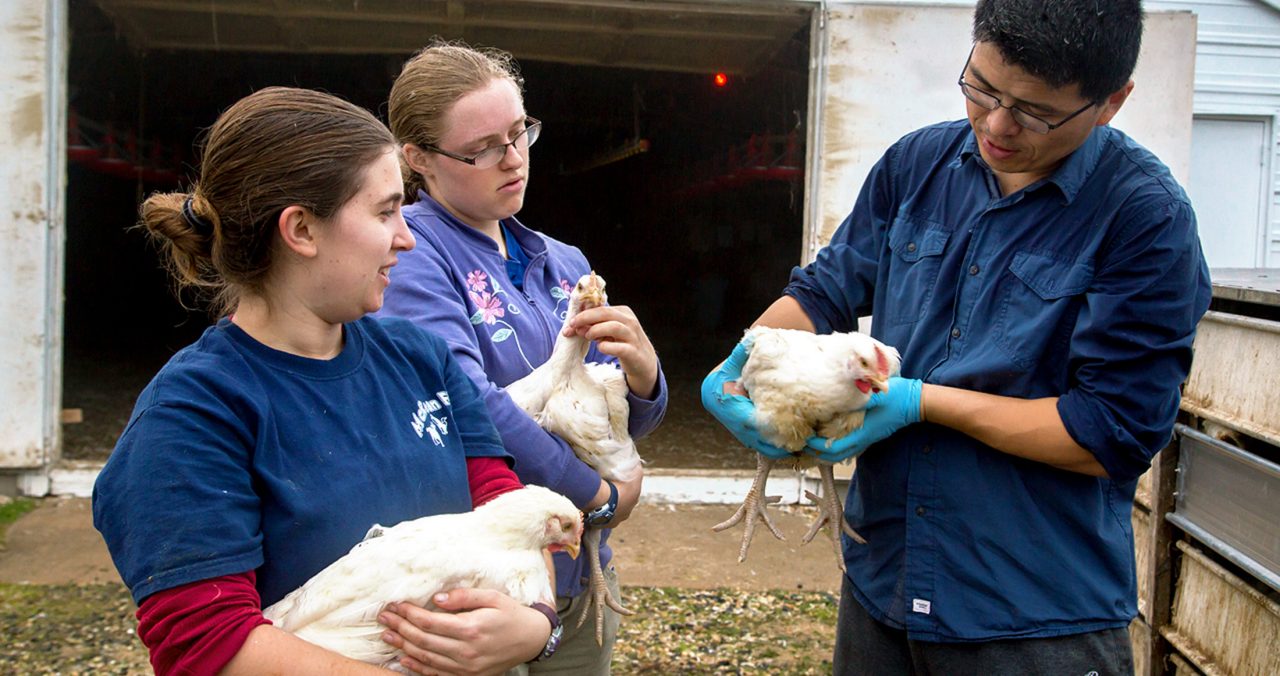
Animal and Food Science graduate programs
Our faculty research areas include:
- Immunology, physiology, and virology;
- Avian infectious diseases and their management;
- Avian genomics and molecular genetics;
- Animal nutrition and metabolism;
- Equine metagenomics; and
- Food microbiology, safety, and processing.
Multiple graduate degree areas exist in the department, namely:
- A joint Ph.D. degree program in Animal and Food Sciences
- Two M.S. degree programs (Thesis) — one in Animal Science and one in Food Science
- Three new, non-thesis M.S. degree programs primarily designed for individuals interested in learning and enhancing multidisciplinary technical and leadership skills. The programs include concentrations in 1) Animal Science Business and Entrepreneurial Leadership; 2) Food Science Business and Entrepreneurial Leadership; and 3) Animal and Food Sciences: Veterinary Biosciences, Biotechnology and One Health (VBBOH).
Students accepted into the ANFS Ph.D. and M.S. (thesis) program have access to financial support and tuition scholarships. Most graduate students are funded through research assistantships (RAs) and teaching assistantships (TAs).
Our graduates are successfully prepared for professional schools (e.g., veterinary and medical), or to further their education through advanced degrees (Ph.D. programs and post-doctoral positions). Many of our alumni are employed in the fields of biotechnology, food product development and safety, pharmaceutical research, vaccine development and testing, agricultural feed and nutrition industries, as well as government administration and policy.
-
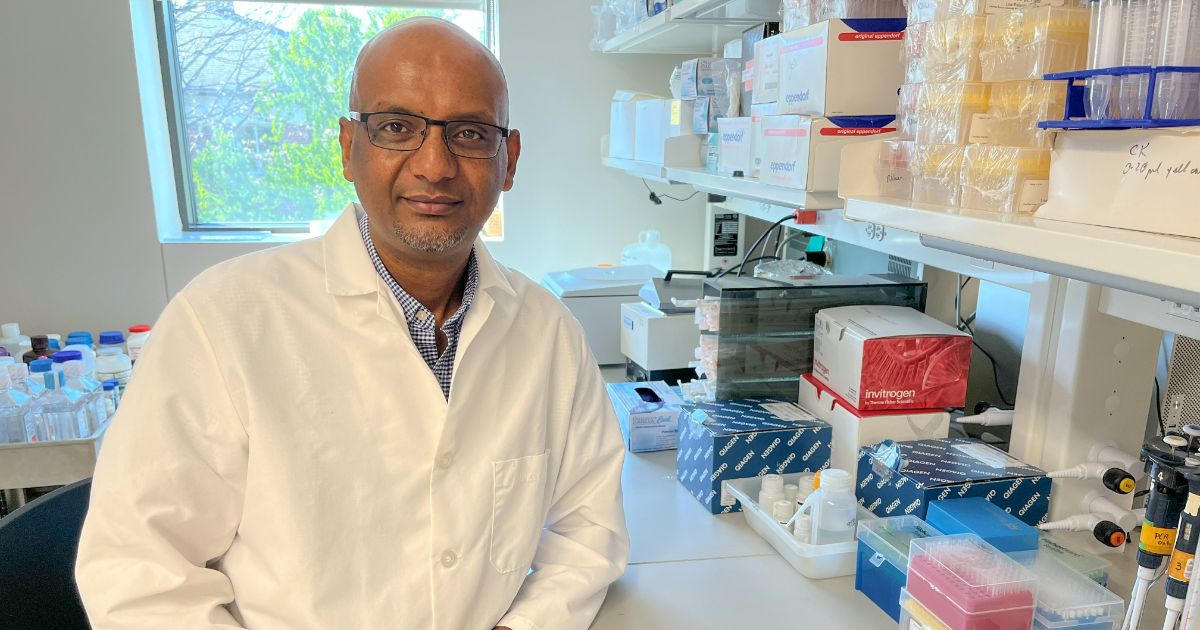
Meet our new faculty: Alexander Yitbarek
April 22, 2024 | Written by Katie Peikes | Photo by Katie PeikesNew CANR faculty member Alexander Yitbarek researches the effects of various feed additives and nutrients on chickens’ health and performance. He also researches various diseases that affect chickens’ health, overall performance and welfare. -
Get ready for Ag Day
April 18, 2024 | Written by Katie Peikes | Photos by Katie Young and Monica MoriakUD’s College of Agriculture and Natural Resources gears up for annual showcase for the community. -
Kali Kniel leads the charge in safe food practices globally
April 18, 2024 | Written by Nya WynnUniversity of Delaware faculty member Kali Kniel traveled to Geneva, Switzerland to participate in an expert committee meeting on viruses and food safety with other experts. Joint Food and Agriculture Organization/World Health Organization Expert Meetings on Microbiological Risk Assessment (JEMRA) committees are convened to review the state of science on particular topics and in turn provide information that is useful to global guidance, in this case to improve the control of viruses in food. The group ranked the most prevalent viruses transmitted through food and recommended how countries across the world could help combat outbreaks.


